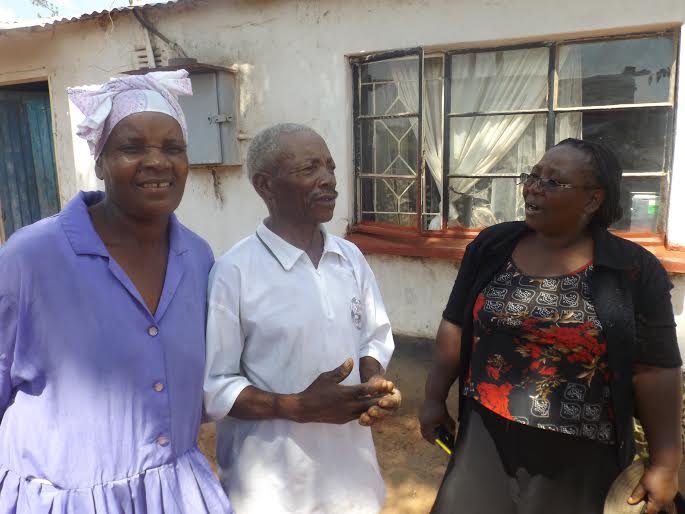
A Domboshava woman, Patricia Molife (57) has won the admiration of the local Ward 5 community where she is the village head.
BY HAZVINEI MWANAKA
The role is traditionally reserved for males, but Molife has proved that women too can be up to the task if given the opportunity. Molife is a mother of four and has seven grandchildren.

After the death in 2006 of her husband, who was the village head, her son took over the reigns from his father.
However, the son’s reign did not last long because he was not always available to the community as he was working in Harare. This created a void as a village head’s role is not an 8am to 5pm white collar career, but a 24-hour job.
A village head should always be available to take part in all activities in the community.
“A representative came to me with a message from the Headman that he had seen it worthy to appoint someone who is always available to the community. He then asked if I had identity particulars bearing my husband’s surname,” Molife said.
“Of course I had them, and he challenged me to take up the position.”
- Chamisa under fire over US$120K donation
- Mavhunga puts DeMbare into Chibuku quarterfinals
- Pension funds bet on Cabora Bassa oilfields
- Councils defy govt fire tender directive
Keep Reading
Molife then sought police clearance that she had no criminal record, as required by the law.
She said when she was confirmed as village head, she was not sure if she was ready to undertake the task.
Molife said Zimbabwe’s patriarchal society not only looks down upon women, but makes females believe they are not good enough for some of these traditional roles.
“I knew I had to carry the Molife name, but being a woman, I just looked down upon myself saying maybe I will not able to do the job,” she said.
“But I later reminded myself that there are other women who have jobs that are above mine such as chiefs but are excelling in their positions. That is why I took up the offer.”
Molife is now in her fifth year as village head after her appointment in 2009. But she still believes she has a lot of work ahead of her.
“We tell people in our community about behaviour change. I was also trained to handle burning community issues such as child care work, gender based violence, HIV and Aids, among others, and these are skills that I am still using in our day to day life,” she said.
Molife said she also learnt how to deal with children and youths and protect their rights and responsibilities in the community.
“I teach during community meetings and I have the privilege to give some lessons to children at the nearby school about child abuse,” she said.
Molife teams up with others who have also been trained on child rights.
“We advocate for the betterment of our children, especially those in child-headed families and those living with HIV, who do not have anyone to properly look after them,” she said.
“Children’s issues are very sensitive, and though we counsel children with the aim of improving our community, we also have difficulties with guardians who want to hide various child rights violations such as child rape. We then enlist the assistance of the police to make our society a better place for children.”
Molife said she has handled sensitive cases and passed what she said were fair and just judgements.
Conelia Chimutsa, who works with Molife said, it was a great honour to work with a fellow woman.
“I started sometime back, as a treasurer, secretary up until I was appointed deputy village head. People in our community have confidence in Molife as our village head. She tries all cases brought before her fairly without fear or favour,” said Chimutsa.
“Of course we don’t consider that she is a woman, we just take her as our leader.”
But village head Molife’s major victory has been that of changing the perceptions of men in her village and even beyond.
Tiritose Matsika, another villager, said he believed women could perform as competently as men and as a man himself, he did not feel threatened.
“I believe it is high time women should assume higher positions. Our village head has seven committee members and we have confidence in her,” Matsika said.
“During her court sessions, her judgments are without favouritism, and she is a leader of great integrity who does not accept bribes.”
Another committee member, James Chizema, also said when women took up higher positions they did a very good job as exemplified by his local village head, Molife. “She is a hardworking woman who believes in fairness and justice. We have women who are educated and who can still perform as perfectly as any man. I believe if those women can perform well why not have them in higher positions?” said Chizema.
He added that most men in the village had since accepted their woman village head.
Molife however, castigated those women who looked down upon their spouses after landing influential positions.
“I think that is not good at all. There is need to respect your marriage, actually there is no need to practise your fame and seniority in your home,” she said.











